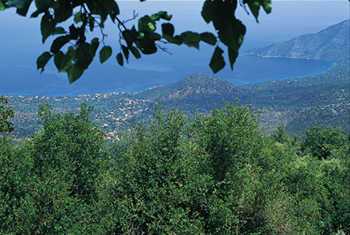
Andreas Palaiologos (or Palaeologus) (1453 - 1503) de jure Byzantine emperor and Despot of Morea from 1465 until death in 1503.
He was the nephew of Constantine XI Palaiologos, the last Byzantine Emperor of Constantinople. After Constantine was defeated and killed by the forces of Mehmed II on May 29, 1453, Andreas continued to live in Morea, which was ruled independently by Andreas' father Thomas Palaiologos, the younger brother of Constantine, until 1460. At this time he escaped to the Italian peninsula following an Ottoman invasion. Before entering Italy, Thomas and all his children made the conversion to the Roman Catholic religion. When his father died in 1465, Andreas stayed in Italy under the protection of the Papal States.
During his lifetime, Andreas is believed to have wasted enormous sums of money given to him by the Pope. However, modern historians now believe that the money received from the Pope was only enough for a meager standard of living.
Looking for money and a better life, Andreas tried to sell the rights to the Byzantine crown, which had fallen to him de jure since the death of his father Thomas. Charles VIII of France originally agreed to purchase the rights of succession from Andreas in 1494. However Charles predeceased him on April 7, 1498.
Andreas' younger brother Manuel Palaiologos arranged a deal with the Ottoman Sultan Bayazid II, exchanging his rights to the Byzantine throne for a comfortable pension.
Andreas died a pauper in 1502. According to his will his heirs were Ferdinand II of Aragon and Isabella of Castile. While most scholars believe Andreas left no descendants of his own, Donald M. Nicol's The Immortal Emperor recognises a Constantine Palaiologos who served in the Papal Guard and a Maria who married Russian noble Mihail Vasilivich as possible offspring of Andreas.
References
 Jonathan Harris, Greek Émigrés in the West, 1400-1520, Camberley: Porphyrogenitus, 1995. ISBN 1 871328 11 X
Jonathan Harris, Greek Émigrés in the West, 1400-1520, Camberley: Porphyrogenitus, 1995. ISBN 1 871328 11 XJonathan Harris 'A worthless prince? Andreas Palaeologus in Rome, 1465-1502', Orientalia Christiana Periodica 61 (1995), 537-54
Donald M. Nicol, The Immortal Emperor, Cambridge University Press, 1992, pp. 115-22. ISBN 0 521 41456 3.
Steven Runciman, The Fall of Constantinople 1453, Cambridge University Press, 1965, pp. 183-4. ISBN 0 521 09573 5

No comments:
Post a Comment